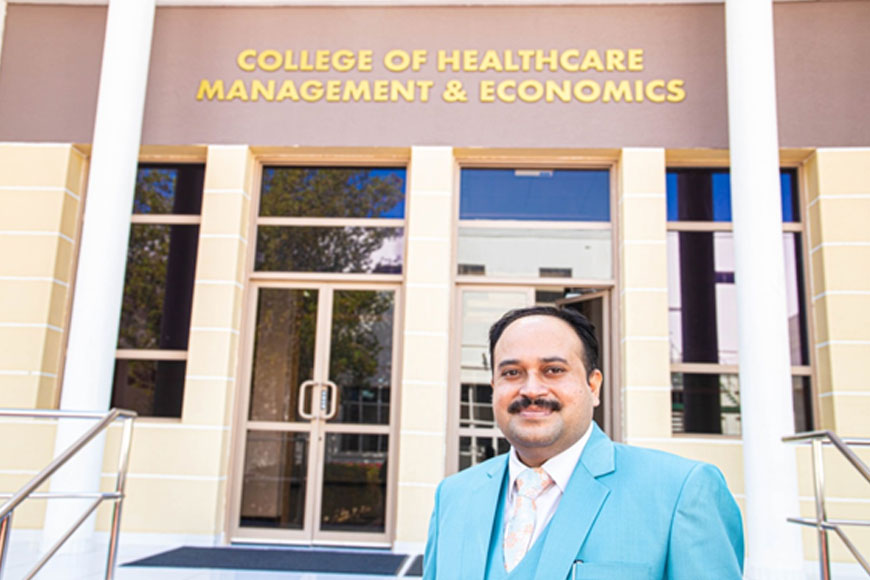Almost everyone in the world has been talking about the consequences and strategies to deal with unprecedented time and situations like pandemic (e.g. COVID 19). The debate on pandemic has travelled almost every domain from medical science to business management and political to social aspects. Numerous debates took place across the globe on how people behaved during the lockdown, what safety measured they took, how they maintained the social distancing to prevent the spread of the virus, how they managed to work remotely. Not only this, many lost their jobs or businesses, family members and mental balance due to the crises. Simply we can say something that has been on the test is ‘Human Emotions’.

One thing everyone trying to explore is, what is next? What should be the next move and how should we strategies to deal with the situation. The world was eagerly waiting for the COVID 19 vaccine. Different distribution and COVID 19 Vaccine administration plans are the main part of the debate. Although COVID-19 preventive behaviors such as mask-wearing and social distancing are effective in curbing the spread of the virus (World Health Organization, 2020), long-term control of the COVID-19 pandemic will hinge on the development and uptake of a preventive vaccine. Currently, getting 100 percent vaccination is the biggest priority by the governments and health administrators. However, they are facing a mixed response from the public. Some people are very excited and motivated to take the vaccine and some are reluctant.
I strongly feel that attention to emotions can complement other major aspects of vaccine dissemination. It will not only help in building trust and credibility but also in achieving successful dissemination. Acknowledging the obvious human emotions such as fears, anger, and other negative emotions will help in achieving safety and efficacy standards that may help to increase vaccine confidence. The COVID-19 pandemic has brought the public’s collective emotions to the surface. At one they learned how to deal with uncertainties the gap between life and death felt closer to many of their loved ones and hence, they got a different angle to look at life. On the other side, due to these uncertainties, people went through different negative experiences including the loss of loved ones, isolation, and loneliness, fear of contracting the virus etc. At the same time news updates and debates on the pandemic have also contributed towards detachment and somewhere reduced the weight of emotional response. This is a possible reason resulting in the fear of vaccine safety.
This is important to understand how emotions operate actions. Considering the pandemic experience and situation understanding human psychology and touching on the varying human emotions and feeling it needs to manage the negative emotions caused by the negative experiences, disinformation and misinformation. Because human emotions vary from person to person and hence the approach ‘one size fits all’ may not be effective. A well-coordinated communication endeavor is required to overcome the challenge. Emotions and experiences are the vehicles for the development, maintenance, and restoration of self-identity and the human emotional state by weaving the threads of an individual’s life history
Now people are with two mindsets i.e. to stay with the fear of the virus (they are used to it for more than a year now) or getting the vaccination done. But, before it causes stress and depression, along with the education on vaccine I see the need of creating different appeals such as joy, warmth activating positive emotions and counteracting negative emotions is required. However, given the complexity of vaccine hesitancy and the varying drivers among different subgroups some quick actions can be helpful. For example, creating catchy music, jingles and songs, winning the ‘trust’ of the public through mainstream media, promoting famous personalities and people vaccinated, addressing potential concerns publically. Being a scholar of consumer psychology I see that many appeals can be used in the present situation especially, personal and social appeal, popularity appeal, adventure appeal, pain solution, statistics and transparent appeals can help overcome negative emotional memories and motivates to look forward to a bright future and respond to self-continuity.
Dr. Sudhir Rana
College of Healthcare Management & Economics
Gulf Medical University, UAE
Dr. Sudhir Rana is a marketing faculty at College of Healthcare Management & Economics at Gulf Medical University, UAE. He believes in driving and motivating academics and research such a way that, it can be best utilized in an enthusiastic and dynamic environment to foster versatile personalities. He is MBA and Ph.D. with MHRD Scholarship from Government of India and Post Doctorate from Putra Business School, Universiti of Putra, Malaysia. His research profile is followed by publications into ABDC/ABS/Scopus/Web of Sciences Ranked & indexed journals published by Elsevier, Emerald, Inderscience, Sage, and Neilson Journal Publishing etc. Dr. Rana is a versatile academician. He performs various roles, as Guest Faculty, Scholar, Editor, Editorial Board Member, Guest Editor, Author, Guest Speaker/Panel Speaker/Moderator, Conference Speaker/Session Chair/Committee Member & Convener, and Workshop Expert at various platforms in India and overseas. He is editor with International Journal of Emerging Markets (Emerald); FIIB Business Review (Sage); South Asian Journal of Marketing (Emerald); and Advances in Emerging Economies and Business Operations (Taylor & Francis). Dr. Rana has delivered more than 100 workshop sessions and expert talks across the globe on different topics related to publishing in high quality journals.

